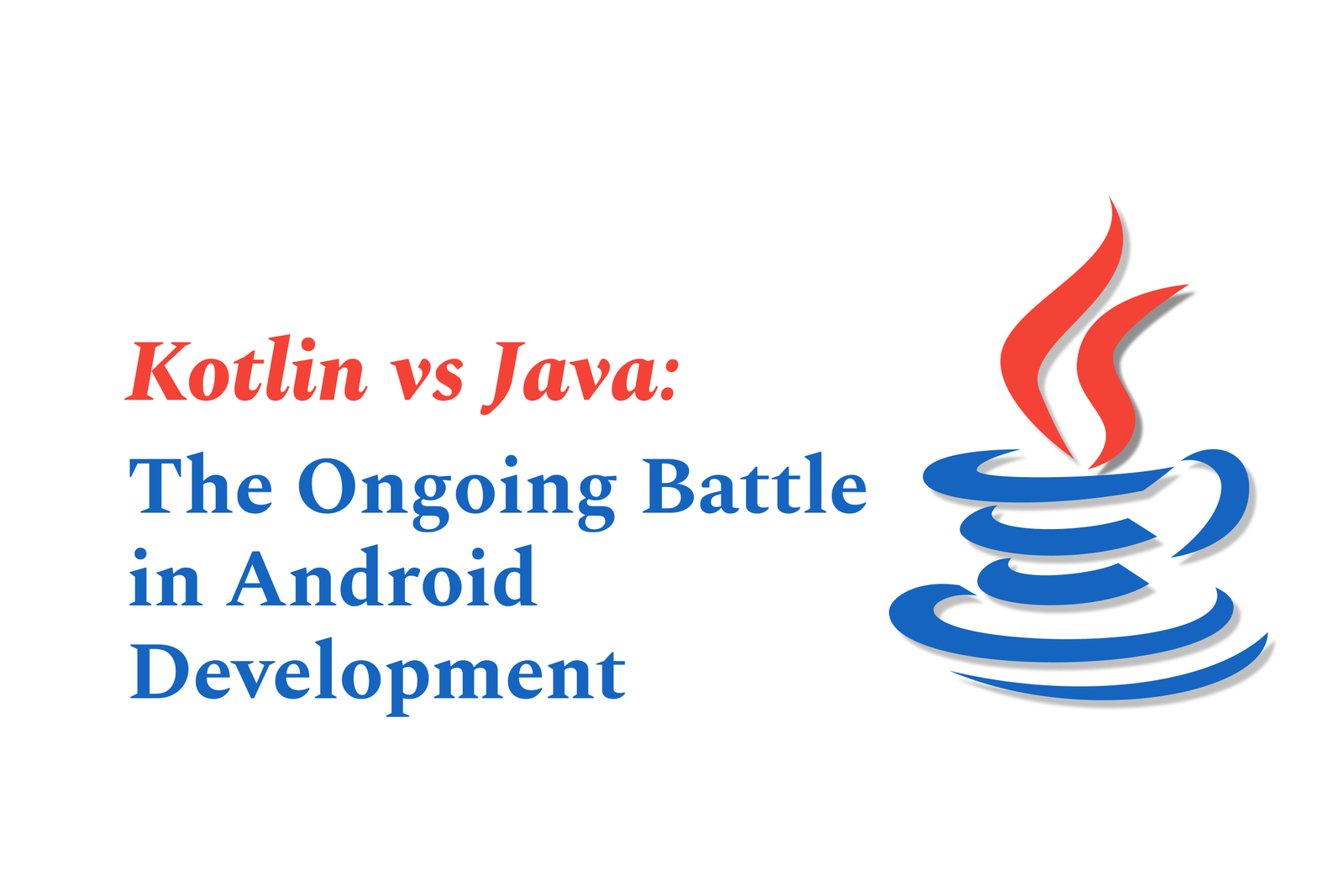Kotlin vs Java: The ongoing battle in Android development
Kotlin and Java are key players in Android development, with Kotlin offering modern features like null safety and coroutines, while Java boasts maturity and a vast ecosystem. The ongoing debate centers on choosing between Kotlin’s conciseness and Java’s proven stability.
Kotlin vs Java: The Ongoing Battle in Android Development
1 ) Introduction to the Debate
Java has long been the trusted language for Android development, known for its reliability and vast ecosystem. Kotlin, introduced more recently and officially supported by Google, offers modern features and syntactic improvements. Rather than a pure rivalry, the discussion highlights how both languages complement each other and serve different developer needs.
2 ) Key Differences Between Kotlin and Java
The article outlines 17 crucial differences, emphasizing that Kotlin supports a more functional programming style and provides null safety, which is difficult to replicate in Java without breaking backward compatibility. Other distinctions include:
Enhanced syntax and reduced verbosity in Kotlin
Absence of checked exceptions in Kotlin
Advanced coroutine support for asynchronous programming
Data classes and type inference to simplify coding
Extension functions and smart casts for cleaner code
3 ) Community Perspectives and Usage
Developers have varied opinions. Some see Kotlin as a sophisticated and expressive language that can reduce boilerplate and improve productivity, especially with features like coroutines for Android GUI programming. However, others argue Java’s vast ecosystem and stable tooling remain unmatched, stressing the importance of simplicity and consistency, especially when managing large scale production systems.
4 ) Ecosystem and Adoption
Kotlin’s rise is heavily tied to Google’s endorsement for Android apps, though JetBrains, Kotlin’s creator, remains central to its development. While Kotlin's ecosystem is growing, some believe it is still not at Java's mature level. Java advocates suggest knowing Java first can be beneficial before diving into Kotlin.
5 ) Learning and Practical Considerations
For developers transitioning or learning object oriented programming, Kotlin may present an easier entry due to its concise syntax and modern features. However, Java's verbosity can sometimes aid clarity, especially under pressure in real world debugging scenarios.
6 ) Summary and Outlook
The debate is less about choosing a winner and more about understanding each language's strengths and use cases. Experienced developers are encouraged to leverage both, learning from Java’s robustness and Kotlin’s modern capabilities. Despite new languages emerging, Java continues to maintain a strong foothold due to adoption hurdles, ecosystem, and stability.
Conclusion:
The ongoing battle between Kotlin and Java in Android development is a dynamic conversation reflecting evolving programming paradigms, tooling preferences, and platform support. Both languages offer unique benefits, and their coexistence empowers developers to choose the best tool for their project requirements.
https://justacademy.in/news-detail/apple?s-push-notification-updates-for-ios-19
https://justacademy.in/news-detail/flutter-integration-with-github-actions
https://justacademy.in/news-detail/flutter-github-stars:-most-watched-repos
https://justacademy.in/news-detail/android-wearable-device-updates
https://justacademy.in/news-detail/swiftui-for-mac-catalyst:-building-cross-device-apps
Related Posts
In 2025, top Angular libraries offer modern, feature-rich components and tools for building dynamic web apps. From powerful data grids to low-code platforms like UI Bakery, these libraries enhance development speed, UI design, and scalability, making them essential for Angular developers.
Migrating from AngularJS to Angular 17 involves gradually upgrading your app by running both frameworks together using tools like ngUpgrade, rewriting components in TypeScript, and adopting Angular’s modern architecture to enhance performance, maintainability, and long-term support.
Angular state management tools help organize and handle app data efficiently, improving scalability and maintainability. Popular options include NgRx for robust, RxJS-based patterns, and newer Signal Store solutions that offer simpler, reactive approaches integrated tightly with Angular’s latest features.
RxJS in Angular empowers developers to manage asynchronous data streams with powerful operators like `forkJoin`, `combineLatest`, and `zip`. Mastering these key operators in 2025 is essential for building efficient, reactive applications that handle complex event sequences seamlessly.
Angular performance optimization in 2025 focuses on improving app speed and responsiveness by using techniques like OnPush change detection, lazy loading, efficient data caching, and AOT compilation. These practices reduce load times, enhance user experience, and ensure scalable, fast Angular applications.
In 2025, Angular remains preferred for large-scale, enterprise apps with its robust, all-in-one framework, while Vue attracts developers seeking simplicity and fast development for smaller projects. Both frameworks excel, with choice driven by project needs and team expertise.
Angular Signals are a new reactive primitive in Angular 16 that enable fine-grained, efficient change detection by automatically tracking dependencies and updating only affected parts of the UI. They simplify state management and boost app performance, revolutionizing Angular's reactivity model.
Angular interview questions to prepare in 2025 focus on core concepts like components, directives, data binding, routing, and dependency injection, along with TypeScript mastery and latest Angular features to ensure strong practical knowledge for building scalable, efficient web applications.
AngularJS reached its official end of support in January 2022, meaning no further updates or security patches. To ensure app security and performance, developers should consider migrating to modern Angular versions or seek third-party long-term support options if immediate migration isn’t possible.
The Angular Roadmap 2025 highlights upcoming features focused on improving developer experience and performance, including zoneless Angular, Signals integration, enhanced Forms, async data handling, improved HMR, and expanded Angular Material/CDK enhancements, driving modern, efficient web app development.










